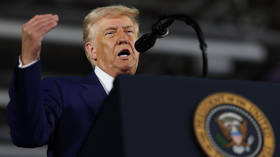French say ‘non merci’ to nonbinary pronouns

France is choking on ‘le wokisme,’ as speakers of the New Normal’s argot struggle to convert their fellows – forcing them through linguistic hoops that are not compatible with French language or culture.
French First Lady Brigitte Macron has affirmed the language has “two pronouns: he and she” (il and elle, en Français).
“Our language is beautiful. And two pronouns are appropriate,” she declared succinctly earlier this month.
Such seemingly-innocuous words have France’s would-be woke activists up in arms, accusing the centrist government of “violence.” Non-binary student Lilian Delhomme told the New York Times the expression “made [them] lose hope,” suggesting the age difference between the Macrons should have changed the first lady’s perspective on social norms.
But, like the distaste many native Spanish speakers feel toward “Latinx” – the genderless stand-in meant to delineate a Latino or Latina individual by woke (usually white) organizers in an effort to appear inclusive – most French-speakers find it at the very least unpleasant to attempt to communicate without gender.
Their language is structured based upon it. There’s no getting around the masculine and feminine nouns that describe every object – not that the wannabe-woke among the French haven’t tried it.
A movement for so-called “inclusive writing” has butted heads with France’s famously conservative Académie française, which described any changes put forth by the would-be reformers as “harmful to the practice and intelligibility of the French language.”
That hasn’t stopped a small but determined contingent from attempting to adopt a genderless pronoun, importing “le wokisme” from the US with the neologism “iel” (a mixture between the masculine “il” and the feminine “elle”).
It’s not going so well for iel, though. Center-right legislator François Jolivet has spearheaded a campaign to keep the gender-neutral pronoun out of Le Petit Robert dictionary, declaring its inclusion to be a form of “militancy” – “you legitimize words, you legitimize thoughts,” he said, describing himself in an interview with the French press as “a tolerant man convinced that ‘iel’ was the wrong battle.”
Even left-wing outlet Libération seems to not be entertaining the genderless American way, one headline snarkily describing “The Highway to Iel.”
The linguistic conservatism of the French is protected not only by the Academie française’s staunch opposition to what one member recently termed “brainless Globish,” but by a hard-coded avoidance of racial politics – the country is legally prohibited from compiling racial statistics, making it nearly impossible for le wokisme to find a foothold.
But “iel” made it into Le Petit Robert – the online edition, at least – upsetting education minister Jean-Michel Blanquer, who accused the publisher of “manipulat[ing] the French language.”
“Iel,” he said, was a clear expression of “wokisme.” It’s a subject he is familiar with, having blamed a backlash against American wokeness for the 2016 election of US President Donald Trump. Five years later, he has the French first lady on his side.
Indeed, the Macrons have proved to be a surprising ally for some. The French president – hardly a staunch conservative in the eyes of his supporters – might at first appear to be an easy convert to wokisme. Yet even he has bristled amid the onslaught of ‘brainless Globish,’ deeming “certain social science theories entirely imported from the United States” as a potential threat to French culture.
However, Robert’s managing director, Charles Bimbenet, echoed his American counterparts in defense of whatever “wokisme” might have found its way into his dictionary, insisting the reference book’s mission was “to observe the evolution of a French language that is in motion and diverse, and take account of that.”
As the Americans might say – and Macron might once have echoed – “diversity is our strength.”
The statements, views and opinions expressed in this column are solely those of the author and do not necessarily represent those of RT.















